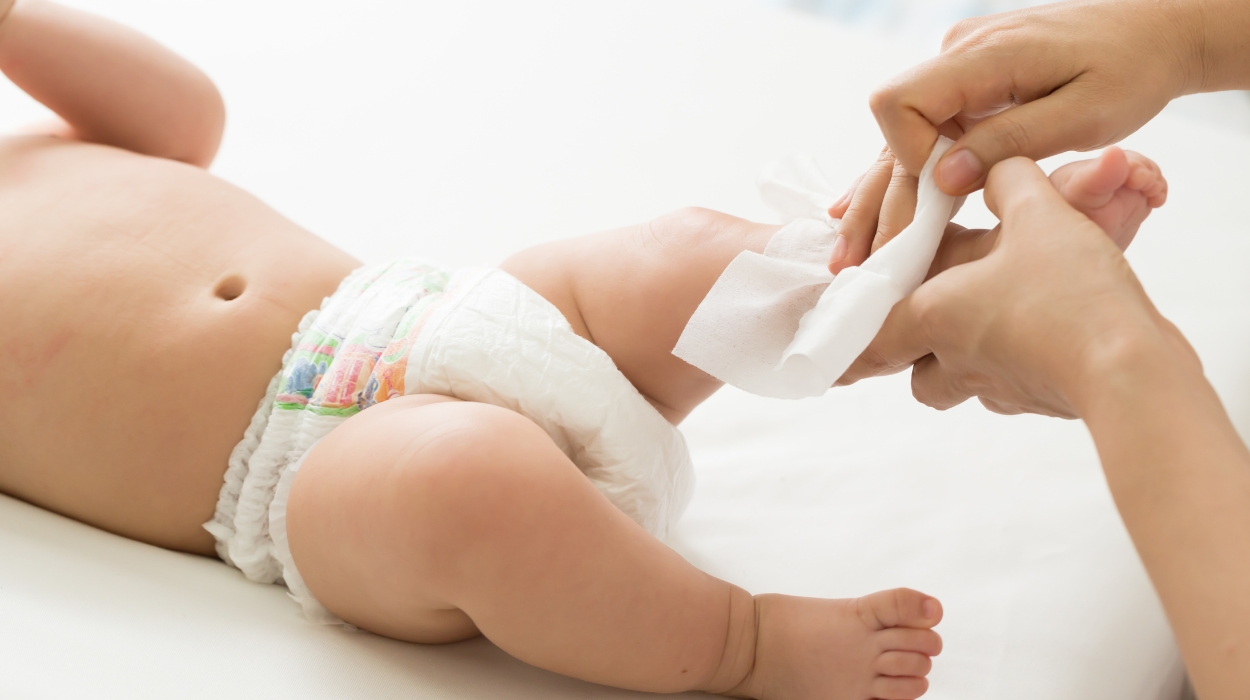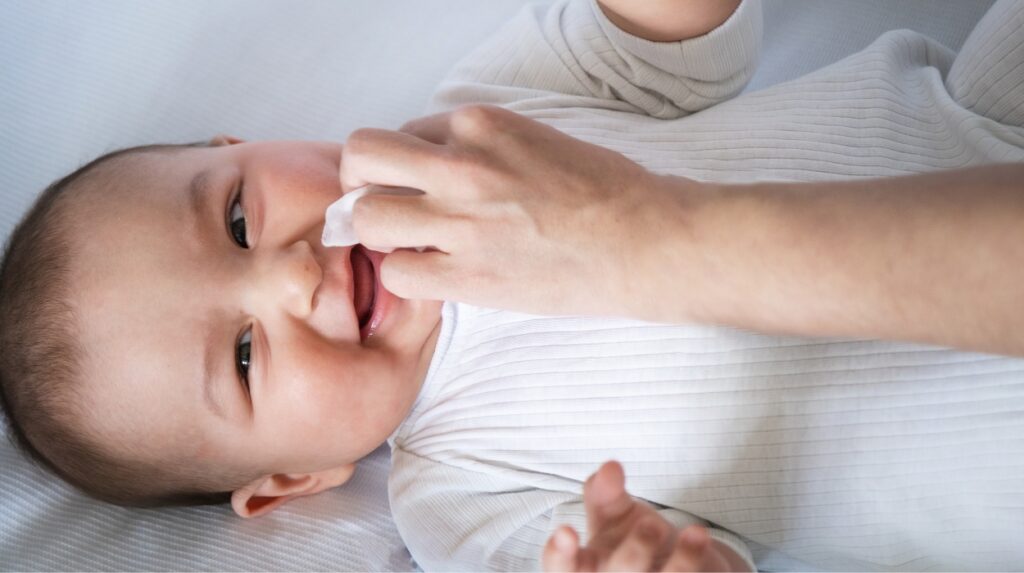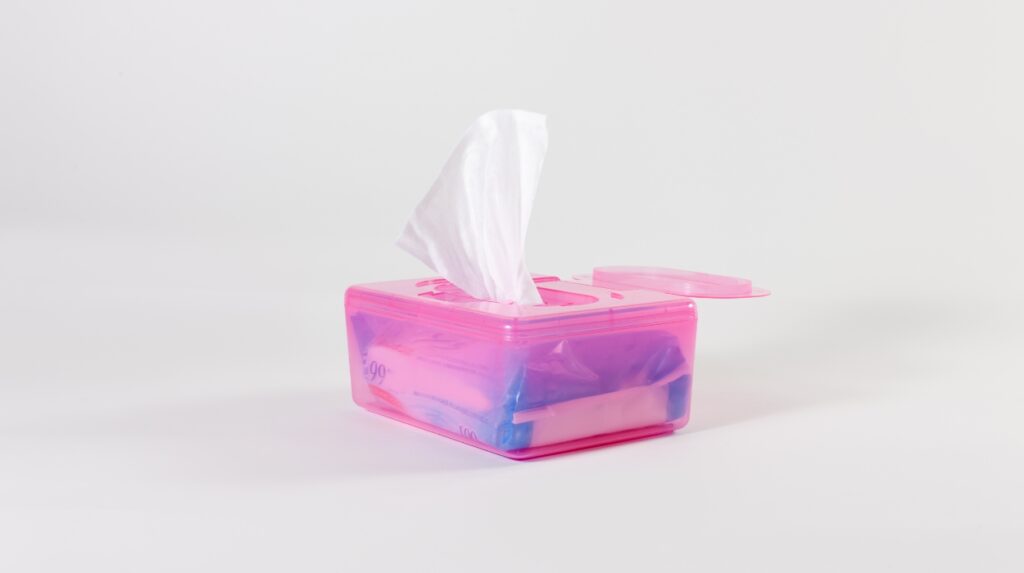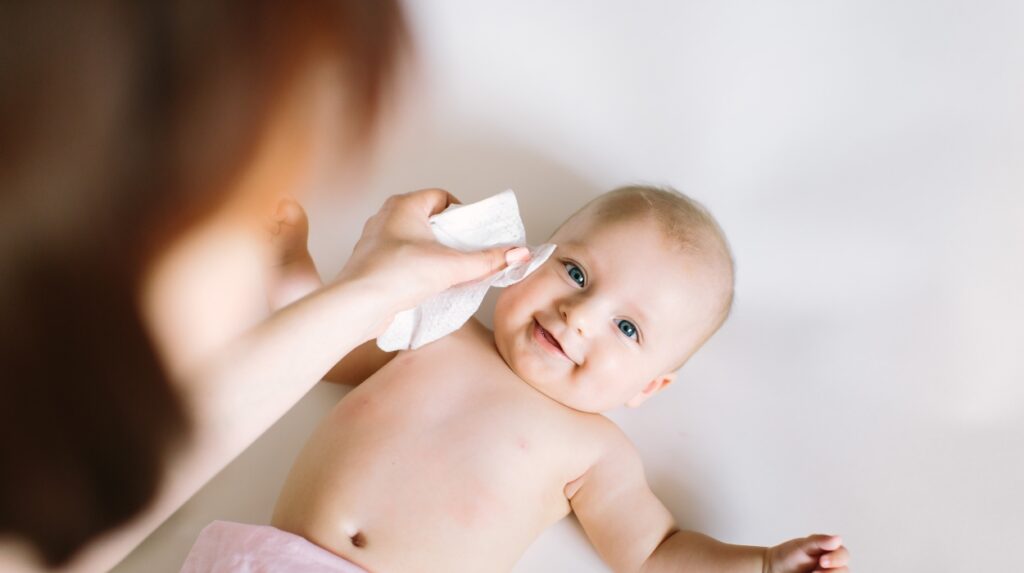How to Choose Non-Toxic Baby Wipes: Free Guide & Tips 2024

Welcome to our comprehensive guide on choosing non-toxic baby wipes in 2024. As parents, we strive to provide the safest and healthiest environment for our little ones, and that starts with the products we use on their delicate skin. This guide will walk you through the essential factors to consider when selecting baby wipes that are free from harmful chemicals and gentle on your baby’s skin.
With an overwhelming number of options on the market, it’s crucial to prioritize non-toxicity and natural ingredients. We will explore the importance of avoiding toxic chemicals and opting for biodegradable, organic, and fragrance-free alternatives. You’ll learn about key ingredients such as grapefruit seed extract, aloe vera, and organic cotton, which offer soothing properties and minimize the risk of skin irritation.
We’ll also delve into the benefits of reusable and compostable options and popular brands like Pipette, Water Wipes, and Jackson Reece. Our guide will equip you with the knowledge to make an informed decision when choosing the safest baby wipes for your little one.
Why Are Chemicals in Baby Wipes?
Chemicals are commonly present in baby wipes for various reasons. Manufacturers use chemicals to ensure the wipes effectively clean and remove impurities from the baby’s skin. Some chemicals act as preservatives to prevent bacterial growth and maintain the wipes’ shelf life. Fragrance-enhancing chemicals are sometimes added to provide a pleasant scent.
While not all chemicals in baby wipes are harmful, some raise concerns due to potential risks and skin irritation.
Why Should You Be Worried About Toxic Baby Wipes?
Being concerned about toxic baby wipes is important for several reasons. Here are a few key reasons why you should pay attention to the potential toxicity of baby wipes:
- Skin irritation: Toxic baby wipes can cause skin irritation, leading to discomfort, rashes, redness, or dryness on your baby’s delicate skin.
- Chemical exposure: Certain chemicals found in toxic baby wipes, such as parabens, phthalates, or formaldehyde-releasing preservatives, have been associated with potential health risks, including hormone disruption and developmental issues.
- Allergic reactions: Toxic baby wipes may contain chemicals and fragrances that can trigger allergic reactions in babies with sensitive skin, resulting in itching, swelling, or inflammation.
- Absorption into the body: The skin is permeable, and harmful chemicals in baby wipes can be absorbed into your baby’s body, raising concerns about potential long-term health effects.
- Environmental impact: Many toxic baby wipes are made from non-biodegradable materials, contributing to landfill waste. Improper disposal of these wipes can also lead to water contamination and harm the environment.
- Peace of mind: By using non-toxic baby wipes, you can prioritize your baby’s safety, reduce the risk of exposure to harmful substances, and have peace of mind knowing you are making a safer choice.
Advice on Choosing Natural Baby Wipes

Look for organic ingredients
When choosing organic baby wipes, prioritize baby products that contain natural ingredients, such as plant-based extracts, organic oils, and gentle cleansers derived from natural sources. Avoid wipes that contain synthetic or harsh chemicals. Organic certification provides reassurance of a higher standard of purity.
Also, look for natural baby wipes labeled hypoallergenic and dermatologist-tested. These wipes are formulated to minimize the risk of skin irritation and are suitable for babies with sensitive skin.
Avoid harmful chemicals
Read the label carefully and avoid baby wipes that contain harmful chemicals like parabens, phthalates, formaldehyde-releasing preservatives, and artificial dyes. These substances can pose risks to your baby’s health and skin.
Choose fragrance-free baby wipes or those scented with natural essences, such as essential oils derived from plants. Avoid wipes with synthetic fragrances, which can be potential irritants or allergens.
Biodegradable and eco-friendly
Select natural baby wipes that are biodegradable and environmentally friendly. These biodegradable baby wipes are made from sustainable materials that break down over time, reducing their impact on the planet.
Read reviews and recommendations
Research and read reviews from other parents to gather insights on the effectiveness, quality, and safety of different natural baby wipe brands. Real-life experiences can help guide your decision-making process.
By following this advice and considering these factors, you can make informed choices when selecting natural baby wipes on the market. Prioritizing natural ingredients, avoiding harmful chemicals, and considering environmental impact will help provide a safer and healthier option for your baby’s delicate skin.
Ingredients to Avoid in Baby Wipes

- Formaldehyde-releasing preservatives: Some baby wipes contain preservatives that release formaldehyde, which is a known human carcinogen. These preservatives are used to inhibit microbial growth but pose health risks.
- Parabens: These synthetic preservatives, including baby wipes, are commonly used in personal care products. They have been associated with hormone disruption and potential health risks.
- Phthalates: These chemicals are often used to enhance the fragrance of baby wipes. Phthalates have been linked to developmental issues and are a concern due to their potential toxicity.
- Fragrances: Synthetic fragrances in baby wipes can cause skin irritation and allergic reactions. Opting for fragrance-free or naturally scented wipes is a safer choice.
- Sodium Lauryl Sulfate (SLS) and Sodium Laureth Sulfate (SLES): These surfactants are used for their cleansing properties but can be harsh on delicate baby skin, leading to dryness and irritation.
- Propylene Glycol: This ingredient is a synthetic humectant used to maintain moisture in baby wipes. However, it can cause skin irritation and allergic reactions in some individuals.
- Synthetic dyes: Artificial dyes are often used to give baby wipes a visually appealing color. However, they can be unnecessary and may increase the risk of skin irritation.
- Methylisothiazolinone (MIT): This preservative is commonly used in baby wipes but has been associated with skin allergies and irritation.
Avoiding these ingredients in baby wipes can reduce the potential risks of skin irritation, allergies, hormone disruption, and other health concerns. Opting for non-toxic and natural alternatives is recommended to prioritize your baby’s safety and well-being.
Best Plant-Based Material for Baby Wipes
- Organic Cotton: Organic cotton is a popular and widely used plant-based material for baby wipes. It is soft, gentle, and hypoallergenic, making it suitable for babies with sensitive skin. Organic cotton is grown without pesticides or harmful chemicals, making it a safer and more sustainable choice.
- Bamboo: Bamboo is another excellent plant-based material for baby wipes. It is naturally antibacterial, soft, and highly absorbent. Bamboo is known for its sustainability as it grows quickly and requires minimal water and pesticides.
- Wood Pulp: Baby wipes from sustainably sourced wood pulp are popular. Wood pulp fibers are soft, strong, and naturally absorbent. They provide effective cleansing while being gentle on the baby’s skin.
- Plant-Based Cellulose: Cellulose derived from plant sources such as eucalyptus or corn is often used in plant-based baby wipes. It offers excellent absorbency and is biodegradable.
These materials provide a gentle and eco-friendly alternative to synthetic options, making them suitable for babies sensitive skin while minimizing environmental impact.
Benefits of Toxic Chemical-Free Baby Wipes

- Skin safety: Toxic chemical-free baby wipes are formulated without harmful substances, reducing the risk of skin irritation, rashes, and discomfort for your baby’s delicate skin.
- Health protection: By avoiding toxic chemicals in baby wipes, you minimize the potential health risks associated with exposure to harmful substances, such as hormone disruption or developmental issues.
- Allergen avoidance: Toxic chemical-free wipes are free from common allergens, including fragrance and certain preservatives, reducing the likelihood of allergic reactions in babies with sensitive skin.
- Environmentally friendly: Many toxic chemical-free baby wipes are made from biodegradable materials, minimizing their environmental impact compared to non-biodegradable options.
- Peace of mind: Using toxic chemical-free baby wipes provides peace of mind for parents, knowing they are making a safer choice for their baby’s well-being and minimizing potential risks.
By choosing toxic chemical-free baby wipes, you can ensure the safety and well-being of your baby’s skin, protect their health, contribute to a healthier environment, and have peace of mind as a parent.
Alternatives to Disposable Baby Wipes
- Cloth Wipes: Cloth wipes are reusable and can be made from soft, natural fabrics like organic cotton or bamboo.
- Water Wipes: Water wipes are made of mostly water and a few natural ingredients. They provide a gentle cleansing option for the baby’s sensitive skin without harmful chemicals or fragrances.
- Reusable Wipe Systems: Some companies offer reusable wipe systems that include cloth wipes and a container to hold water or a homemade wipe solution. These systems are convenient and allow you to customize the solution to suit your baby’s needs.
- Natural Fiber Wipes: Natural fiber wipes are made from plant-based materials like bamboo, organic cotton, or wood pulp.
- DIY Wipe Solutions: You can make your own wipe solutions using natural ingredients like water, organic oils, and gentle baby wash. This allows you to control the ingredients and tailor the solution to your baby’s needs.
- Washcloths: Plain washcloths can be used as an alternative to disposable wipes. They are reusable, soft, and can be easily washed after use.
- Compostable Wipes: Biodegradable wipes or compostable wipes are made from biodegradable materials that break down naturally. They can be disposed of in a composting facility, reducing landfill waste.
- Hybrid Wipes: Hybrid wipes are reusable baby wipes with a disposable liner. They provide the convenience of disposable wipes while minimizing waste by allowing you to replace only the liner.
By exploring these alternatives, you can reduce your environmental footprint, save money in the long run, and provide a gentle and eco-friendly option for your baby’s hygiene needs.
Conclusion
Choosing non-toxic baby wipes is essential for the safety and well-being of your little one. Avoiding harmful chemicals and opting for natural, plant-based ingredients can protect your baby’s delicate skin and minimize potential health risks. Additionally, considering environmentally friendly options such as biodegradable or reusable wipes contributes to a sustainable future for your baby and the planet. Prioritizing non-toxic baby wipes ensures a safer and healthier experience for your child.
Frequently Asked Questions
Yes, non-toxic baby wipes are formulated with gentle ingredients that are safe for your baby’s delicate skin.
No, non-toxic baby wipes are free from harmful chemicals such as parabens, phthalates, and artificial fragrances.
Some non-toxic baby wipes are biodegradable, made from sustainable materials that break down naturally over time.
Non-toxic baby wipes are formulated to minimize the risk of skin irritation or allergies. Still, every baby’s skin is unique, so it’s important to check for any specific sensitivities.
Many non-toxic baby wipes are fragrance-free to avoid potential skin irritations caused by artificial fragrances.
Yes, non-toxic baby wipes are often suitable for babies with sensitive skin as they are made with gentle and hypoallergenic ingredients.
Non-toxic baby wipes can be environmentally friendly, especially if made from biodegradable materials or reusable.
Non-toxic baby wipes can be found at baby supply stores, online retailers, and natural health stores. Look for brands that specifically mention being non-toxic and free from harmful chemicals.
+ 4 Sources
Health Canal avoids using tertiary references. We have strict sourcing guidelines and rely on peer-reviewed studies, academic researches from medical associations and institutions. To ensure the accuracy of articles in Health Canal, you can read more about the editorial process here
- Lavender T, Furber C, Campbell M, et al. Effect on skin hydration of using baby wipes to clean the napkin area of newborn babies: assessor-blinded randomised controlled equivalence trial. BMC Pediatrics. 2012;12(1). doi:https://doi.org/10.1186/1471-2431-12-59
- Cheriaa R, Boubaker J. Quality assessment of baby wet wipes. Journal of Industrial Textiles. Published online December 9, 2021:152808372110466. doi:https://doi.org/10.1177/15280837211046619
- Rodriguez KJ, Cunningham C, Foxenberg R, Hoffman D, Vongsa R. The science behind wet wipes for infant skin: Ingredient review, safety, and efficacy. Pediatric Dermatology. 2020;37(3):447-454. doi:https://doi.org/10.1111/pde.14112
- Li N, Dey S, O’Connor R, Abbinante-Nissen J, White J. Approaches to Safety Evaluation of Baby Wipes. Global Pediatric Health. 2022;9:2333794X2211052. doi:https://doi.org/10.1177/2333794×221105261






